
The Cypriot ambassador to Ukraine, Michalis Firillas, said that after February 24, 2022, the structure of tourism in Cyprus underwent significant changes, and many traditional sources of tourists weakened. However, the total number of tourists is growing: according to statistics, Cyprus welcomed more than 4.04 million visitors in 2024, which is 5.1% more than in 2023.
“Although the war has made some adjustments, Cyprus remains popular among Ukrainians. Tourism from Ukraine exists, and I predict that it will soon return to pre-war levels,” said Michalis Firillas, Ambassador of the Republic of Cyprus to Ukraine, during a meeting with a representative of Interfax-Ukraine.
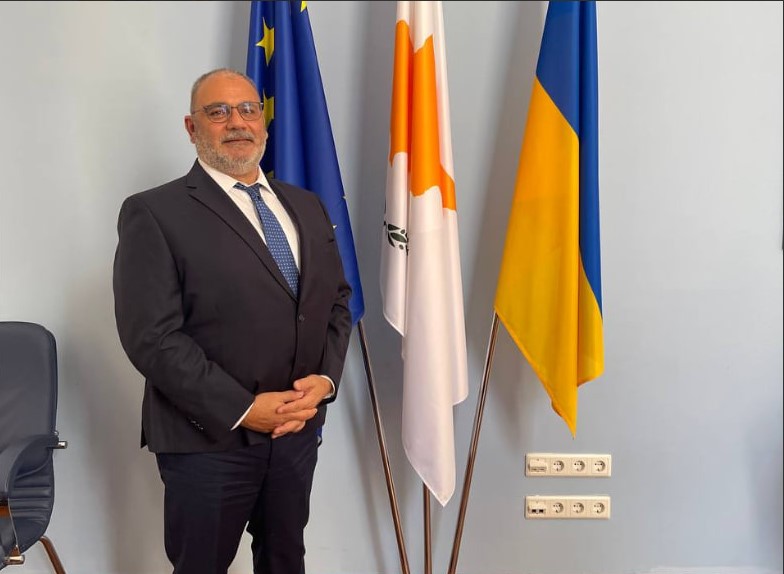
According to the ambassador, at least 25,000 Ukrainian citizens visited Cyprus in 2024. The main convenient routes for Ukrainians are currently flights from neighboring countries, primarily Romania. “Cyprus is promoting the development of air links for Ukrainians, and in December, Wizz Air will launch a new flight from Suceava (Romania) to Larnaca (Cyprus),” he added.
Firilas expressed confidence that after the end of the war, the volume of Ukrainian tourism to Cyprus will return to pre-war levels.
Most tourists to Cyprus currently come from the UK, followed by Israel, Poland, and Germany. These countries form the core of the island’s visitor market.
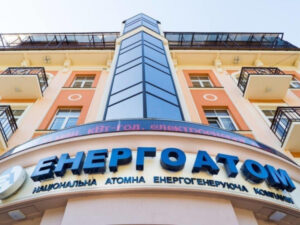
JSC “NAEK ”Energoatom” will be profitable in all three scenarios during 2025-2028, with profits in 2028 expected to be twice as high as in 2026-2027, due in particular to the expected rise in electricity prices.
This forecast is contained in the annual information on fiscal risks prepared by the Ministry of Finance of Ukraine based on data from 12 state-owned companies as part of the adoption of the 2026 state budget. Within the document, basic, alternative, and negative scenarios are modeled for each company based on macroeconomic scenarios for the development of Ukraine’s economy.
“Net revenues from NAEK Energoatom to the state budget are expected in all scenarios and will grow as the company’s profitability increases,” the document says.
As noted by its authors, NAEK plans to build new power units in the long term and has plans in the medium term to attract sufficient debt financing to fund investments. However, construction will continue after the end of the medium-term period, and if such construction is financed through debt obligations, high costs are expected to increase the company’s obligations to a level that it may not be able to service.
“Fiscal risks may materialize if the government has to provide funding to cover part of these costs, or if the government has to service Energoatom’s debts,” the Ministry of Finance concluded.
Under the baseline scenario, Energoatom’s capital expenditures will average about UAH 59 billion per year from 2025 without budget financing, while expenditures on PSO for tariff compensation for the population will decrease by an average of 2.3% in the period 2026-2028.
In addition, the baseline scenario assumes an average increase in electricity prices of 7.9% per year, as well as a slight decrease in the company’s electricity production in 2026-2027, followed by an increase in 2028.
As the Ministry of Finance noted, NAEK received a net profit of UAH 1.3 billion in 2024, compared to a loss of UAH 11.3 billion in 2023. Last year, the company demonstrated a 35% increase in revenue due to a 33.5% increase in the weighted average price of electricity.
According to the results of 2024, the volume of PSO in Energoatom amounted to UAH 109.3 billion, or 53% of the company’s net income for that year.


The United States remains the main strategic partner in the world for Ukrainians, but there is still a significant segment of critical and neutral attitudes in society. This is evidenced by the results of an all-Ukrainian survey conducted by Active Group in cooperation with the Experts Club information and analytical center in August 2025.
According to the survey, 50.3% of Ukrainian citizens have a positive attitude towards the United States (42.0% – mostly positive, 8.3% – completely positive). Only 18.0% of respondents expressed a negative attitude (15.7% – mostly negative, 2.3% – completely negative). Another 30.7% of Ukrainians are neutral, and 1.3% said they were not sufficiently aware of the country.

“The United States remains a key ally for Ukraine in the military, political, and diplomatic spheres. However, the trade and economic dimension is also worth noting: in the first half of 2025, bilateral trade exceeded $2.85 billion, of which exports from Ukraine amounted to $544.5 million and imports from the United States exceeded $2.31 billion. The negative balance of $1.77 billion shows a high level of dependence on American goods, but at the same time indicates the scale of cooperation and the importance of the United States for our economy,” said Maksym Urakin, founder of Experts Club.
In his turn, Oleksandr Poznyi, co-founder of Active Group, emphasized that sociological indicators reflect a complex but stable system of trust.
“Ukrainians highly appreciate the US assistance in the war and international politics. Despite some critical assessments, half of the citizens perceive the United States positively, and almost a third remain neutral. This means that the United States continues to be the No. 1 country for Ukrainian society in the security dimension, and economic cooperation only strengthens this position,” he added.
The survey was part of a comprehensive study of international sympathies and antipathies of Ukrainians in the current geopolitical environment.
The full video is available here:
https://www.youtube.com/watch?v=YgC9TPnMoMI&t
You can subscribe to the Experts Club YouTube channel here:
https://www.youtube.com/@ExpertsClub
ACTIVE GROUP, DIPLOMACY, EXPERTS CLUB, Poznyi, SOCIOLOGY, TRADE, URAKIN, USA
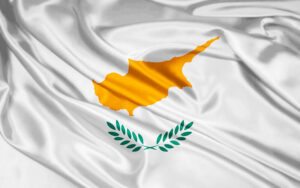
Cyprus will make every effort to open negotiation clusters with Ukraine during its presidency of the European Union in the first half of 2026. This was stated by the Ambassador Extraordinary and Plenipotentiary of the Republic of Cyprus to Ukraine, Michalis Firillas, during a meeting with a representative of Interfax-Ukraine.
“Accession to the European Union provides indirect security: economic, social, in terms of democratic norms and values, as well as freedoms for citizens. We will do everything possible during our presidency to open negotiations with Ukraine on clusters of European legislation,” the diplomat said.
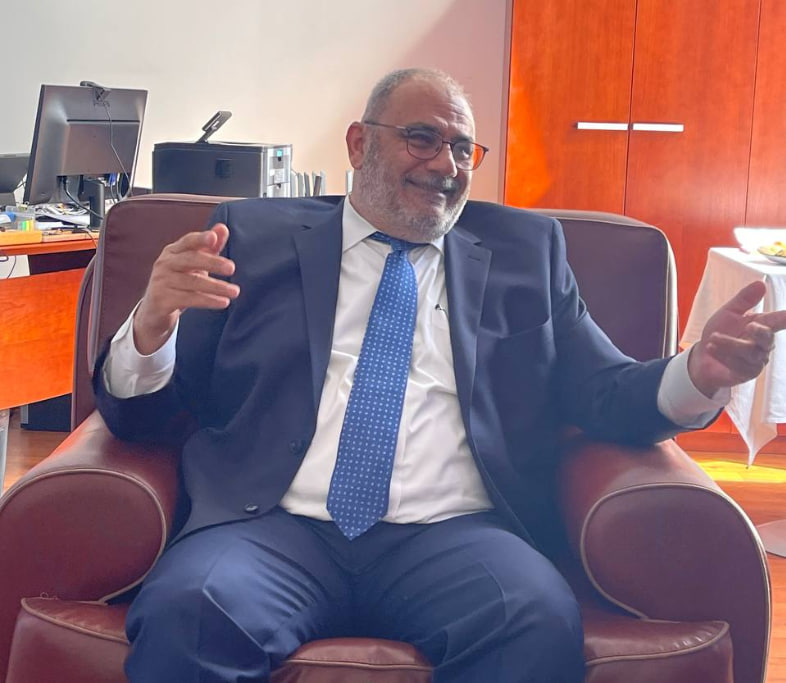
Firillas stressed that Cyprus is working closely on this issue with Denmark and Poland, as well as with European institutions in Brussels. “We want to see progress – this is the common conclusion that unites our Polish and Danish colleagues and all relevant EU structures,” he said.
The ambassador also stressed that Cyprus clearly supports the independence, territorial integrity, sovereignty of Ukraine and its European perspective.
Commenting on the decision-making process in the EU, Firilas stressed the importance of preserving the principle of unanimity. “This is the position of many small countries. It is one of the key elements of the political process in Europe – not to hold anyone hostage, but as a mechanism for expressing national interests,” he added.
From July 1, 2025, Denmark will take over the presidency of the EU Council from Poland; it will last until the end of the year. The presidency will then pass to Cyprus.

The Ukrainian bakery chain Lviv Croissants is opening its first bakery in California (USA), according to the Ukrainian Council of Shopping Centers (URTC).
The 204 sq. m Lviv Croissants bakery, which opened in the Quail Pointe shopping center in Fair Oaks (Sacramento County), offers a wide range of products, including croissants with various fillings, soups, salads, desserts, and its own roasted coffee.
This is the chain’s first bakery in California and an important step in its expansion in the US. Last year, Lviv Croissants opened a store in Georgia.
According to the company’s website, the brand entered the European market in September 2022.
Currently, the chain has 178 locations throughout Ukraine, 11 in Poland, and one each in Slovakia and the Czech Republic. In April 2025, the Lviv Croissants chain opened its first outlet in South Korea. Korean franchisees invested about $250,000 in the bakery, and the total investment in the opening was about $500,000.
BAKERY, California, Lviv Croissants, Quail Pointe Shopping Center
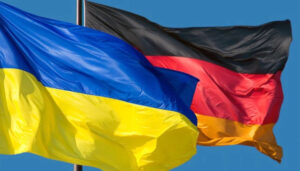

Germany is one of the countries that enjoy the greatest trust and sympathy among Ukrainians. This is evidenced by the results of an all-Ukrainian survey conducted by Active Group in cooperation with the Experts Club information and analytical center in August 2025.
According to the survey, 76.7% of Ukrainian citizens have a positive attitude toward Germany (51.3% are mostly positive, 25.3% are completely positive). Only 4.0% of respondents expressed a negative attitude (3.3% – mostly negative, 0.7% – completely negative). Another 18.7% of Ukrainians are neutral, and 1.0% admitted that they do not know enough about this country.
“For Ukrainians, Germany is first and foremost a guarantor of stability in the European Union, a country that made a huge contribution to supporting Ukraine during the war. At the same time, economic cooperation is also essential: in the first half of 2025, bilateral trade exceeded $5.63 billion, of which Ukrainian exports amounted to $1.58 billion and imports from Germany exceeded $4.05 billion. The negative balance of about $2.5 billion demonstrates that we import more than we export, but this reflects the high demand for German technology and equipment,” said Maksym Urakin, founder of Experts Club.

In turn, Oleksandr Poznyi, co-founder of Active Group, emphasized that the positive attitude of Ukrainians goes far beyond the economy.
“Germany is viewed as a strategic ally in the political and security dimensions. Hundreds of thousands of Ukrainian refugees have found refuge there, and large-scale financial and military assistance plays a key role in the stability of our country. The combination of these factors explains why more than three-quarters of Ukrainians have a positive attitude towards Germany and why this country remains among the absolute leaders of trust in our society,” he added.
The survey was part of a broader study of international sympathies and antipathies of Ukrainians in the current geopolitical context.
The full video is available here:
https://www.youtube.com/watch?v=YgC9TPnMoMI&t
You can subscribe to the Experts Club YouTube channel here:
https://www.youtube.com/@ExpertsClub
ACTIVE GROUP, DIPLOMACY, EXPERTS CLUB, GERMANY, Poznyi, SOCIOLOGY, TRADE, URAKIN